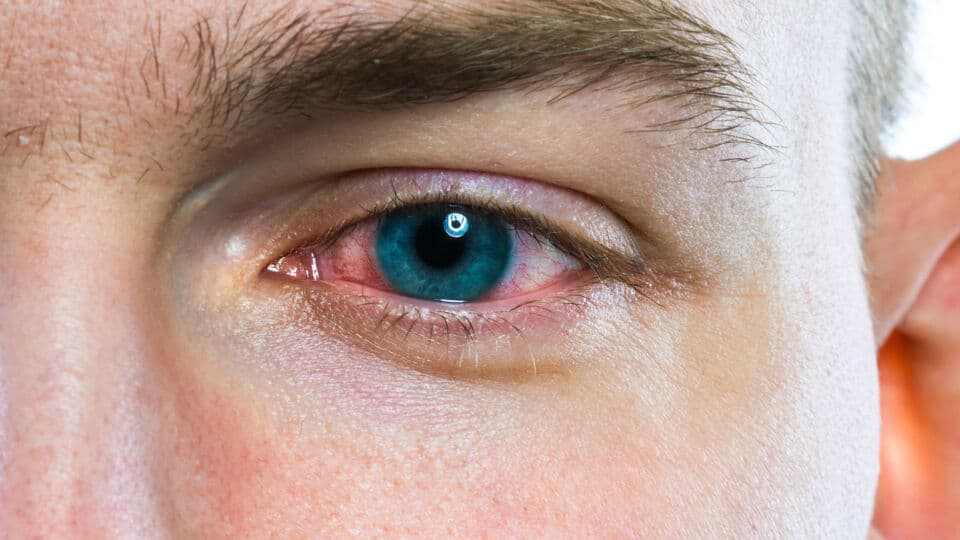Increase in conjunctivitis cases with lifting of Covid-19 restrictions

Easing of curbs could have aided spread of viruses and bacteria that cause condition
The number of conjunctivitis cases in Singapore has risen, amid the lifting of Covid-19 restrictions that could have facilitated the spread of viruses and bacteria that cause the condition.
Parkway Shenton said its clinics have treated more of such patients in the past month. “On average, there are three to four cases a week, as compared with two to three cases in a month previously,” said Dr Chan Yu Fung, a medical practitioner with the healthcare group.
Commonly known as pink eye, conjunctivitis is a viral or bacterial infection, with patients experiencing redness and itchiness in the affected eye as well as discharge from the eye.
“People usually contract conjunctivitis through touching of their eyes with hands or objects contaminated with viruses,” said Dr Chan. It can also be spread via airway droplets when one is in close contact with an infected person who is coughing or sneezing.
 Ophthalmologist Foo Fong Yee, a consultant with Raffles Eye Centre, said the number of infective conjunctivitis cases, resulting from both viral or bacterial infections, has climbed compared with the same period over the last two years.
Ophthalmologist Foo Fong Yee, a consultant with Raffles Eye Centre, said the number of infective conjunctivitis cases, resulting from both viral or bacterial infections, has climbed compared with the same period over the last two years.
“From hardly any cases during the period of social distancing, to a few cases in a week or two,” she noted.
According to the Ministry of Health’s weekly infectious disease bulletin, polyclinics logged an average of 76 cases of acute conjunctivitis a day for the week ending Feb 25, up from 37 during the same period in 2021.
“At the Singapore National Eye Centre, we tend to see patients with more severe disease. Even then, we have seen close to 50 per cent more cases of conjunctivitis in the first two months of 2023 compared with the same period last year,” said Dr Woo Jyh Haur, a senior consultant with the centre’s Corneal and External Eye Disease Department.
Singapore has eased Covid-19 restrictions over the past year. On Feb 13, it lifted the rule on mask wearing on public transport – one of the last remaining pandemic requirements. The country returned to disease outbreak response system condition (Dorscon) green, which indicates that the disease is mild and poses minimal disruption to daily life.
Dr Chan said the relaxation of such restrictions is one possible reason for the growth in conjunctivitis cases.
Accountant Shahjehan Ibrahim said he contracted conjunctivitis twice in recent months – December and January – experiencing itchiness and discharge from his eyes each time.
The 55-year-old, who is married and has three sons, is uncertain how he caught it on either occasion, as none of his family members or co-workers had conjunctivitis during those times.
He made sure that he did not rub his eyes, hug his children or share utensils to avoid infecting his household.
Dr Woo said that to avoid catching or spreading conjunctivitis, people should practise good hygiene and wash their hands regularly, as well as avoid touching the eyes or face with their hands.
“Avoid sharing towels or personal eyecare products. Infected individuals should avoid close contact with others to prevent transmission,” he added.
Conjunctivitis lasts anywhere between a few days and about two weeks. Viral conjunctivitis, which is more common, usually resolves by itself, though a bacterial infection may require antibiotic eye drops.
BIG JUMP IN CASES
At the Singapore National Eye Centre, we tend to see patients with more severe disease. Even then, we have seen close to 50 per cent more cases of conjunctivitis in the first two months of 2023 compared with the same period last year. ” DR WOO JYH HAUR, a senior consultant with the centre’s Corneal and External Eye Disease Department
Source: The Straits Times © SPH Media Limited. Permission required for reproduction.



